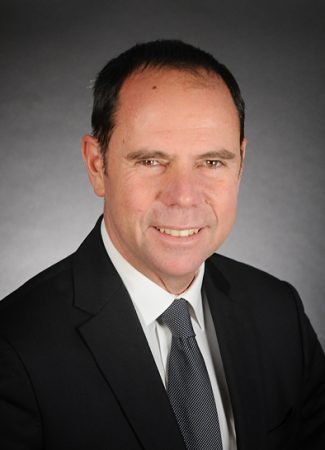What was, a few years ago, merely a theory has now become a proven fact. Global warming caused by the greenhouse effect is inexorably advancing, risking becoming irreversible. Society has started paying attention to the ‘climate emergency’, and we are all changing our behaviour in order to adapt to this crisis.
Energy companies – which are in the eye of the storm – must make a stand, and that is what they are doing. The power industry is abandoning coal for renewable energy generation, just as it is moving from production to retail and, from there, onwards to energy services. Midstream gas companies are seeking to engage more with the world of electricity, as gas remains a transition fossil fuel but is not the ultimate solution. Oil producers are in a paradigm shift, searching for their future in electricity before taking their chances on other energy sources. Will everyone manage to survive this wave of rapid change?
It is upon these troubled waters, where conventional generation gives way to that of renewable energy, that we see the power industry attempting to navigate. Everyone is adapting as best they can. Some have made the radical choice to abandon the world of generation. Such is the case with E.On, which is looking to become the king of customer solutions following the sale of its electrical production sector. Others are following the flow of the tide by very gradually abandoning conventional generation to focus on renewable generation. Within this group, Iberdrola is a few years ahead of the game, while Engie and Enel are realigning themselves. EDF, for its part, prefers to discuss decarbonisation and is focussing, of course, on nuclear power.
There are other interesting cases, such as that of RWE, which, thanks to the acquisition of Innogy, has become one of the key players in renewable energy without having actually forgotten its fossil fuel past; then, there’s the Nordic Fortum, who has become the champion of conventional generation through the acquisition of Uniper. The most opportunistic, like EPH and Sev.en Energy, are separate cases altogether, specialising in the acquisition of ‘toxic’ coal assets so as to carry out decommissioning in the medium term.
It’s worse for the midstream gas players, such as Engie (the legacy of GdF), Naturgy (for its GasNatural side), Uniper, etc., who hide their original sin of being gas companies behind new brands as they partake in the extinction of their world. The current business model of these midstreamers is built on gas infrastructures. However, unlike electricity, which is the vector of the future, gas appears to be tolerated less and less as a transition energy. If gas fails to ‘go green’, the business will disappear. As a result, gas companies are looking for a future in biogas or hydrogen in order to fill their infrastructures, but both of these directions still appear far from being competitive. In the absence of alternatives, these companies are turning to electricity, renewable generation and energy services – with mixed success.
Oil producers, likewise, are in the midst of drastic change. The major players know that a large portion of the oil reserves that they currently have on their balance sheet will never be extracted. This pertains particularly to the more complicated oil deposits, which they alone know how to extract, and which are the key contributors to their profit and loss account. The world of oil, just like that of coal or gas, is destined to decline rapidly, and its major players along with it.
The pioneer BP, which, in the 1980s, had already developed a PV division that was to go bankrupt in the early 2000s, recently announced its zero-carbon target for 2050, without revealing the ‘how’ (apart from an ambiguous increase in ‘low-carbon’ investments and a reduction in gas and oil investments). French company Total is growing in upstream gas and advancing its pawns in electricity, both renewable and conventional (CCGTs). More surprising still, it has positioned itself within retail through the acquisition of Direct Energie. RD Shell appears to be following in Total‘s footsteps, even if it is less explicit in its goal of reducing its CO2 footprint. Finally, we have Exxon Mobil and Chevron, which seem determined not to change their historic strategy in any way, resolving to devote themselves to their lifelong business until their last breath (or the last drop).
In sum, we’re witnessing a collapse of the ‘core business’ for the energy industry, whether they be oil producers, gas companies or players in the power industry. After decades of fine-tuning excellence in its traditional profession, the energy industry must now adapt to the massive changes in its environment and become competitive in new professions to which it isn’t necessarily best suited. To complicate matters even further, beyond suspicions of greenwashing, the energy industry is faced with the loss of profitability of its investments and the natural discontent of its shareholders. The choice between redevelopment (reinvestment) and return of money to shareholders (in the form of dividends or share buybacks) will also form a part of adaptation tactics. Of course, not all evolutionary strategies will produce the expected results. The only certainty is that climate change will drive a revolution in the energy industry, where we’ll be witnessing the extinction of some species alongside the triumph of others. As the old song goes… ‘Que sera sera.’
Antonio Haya






